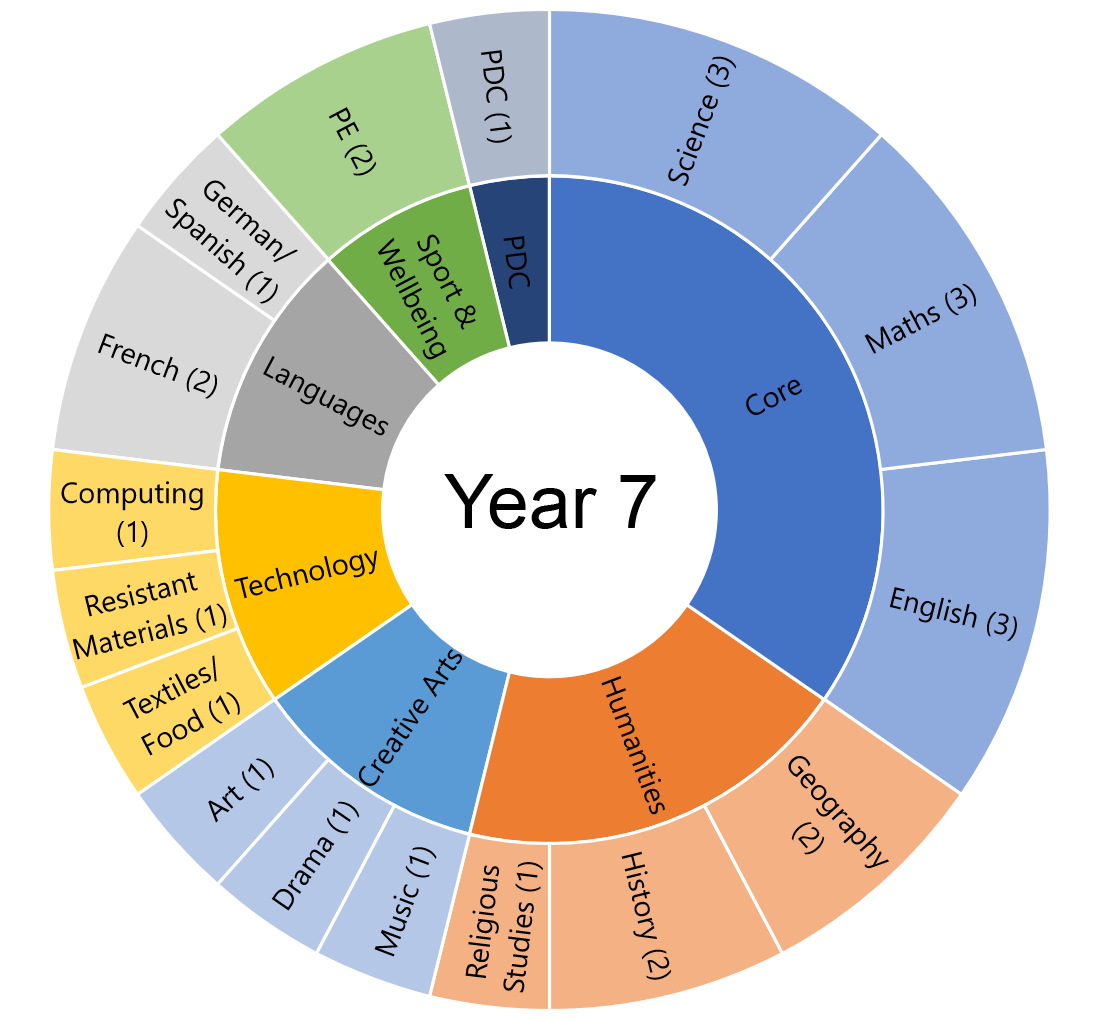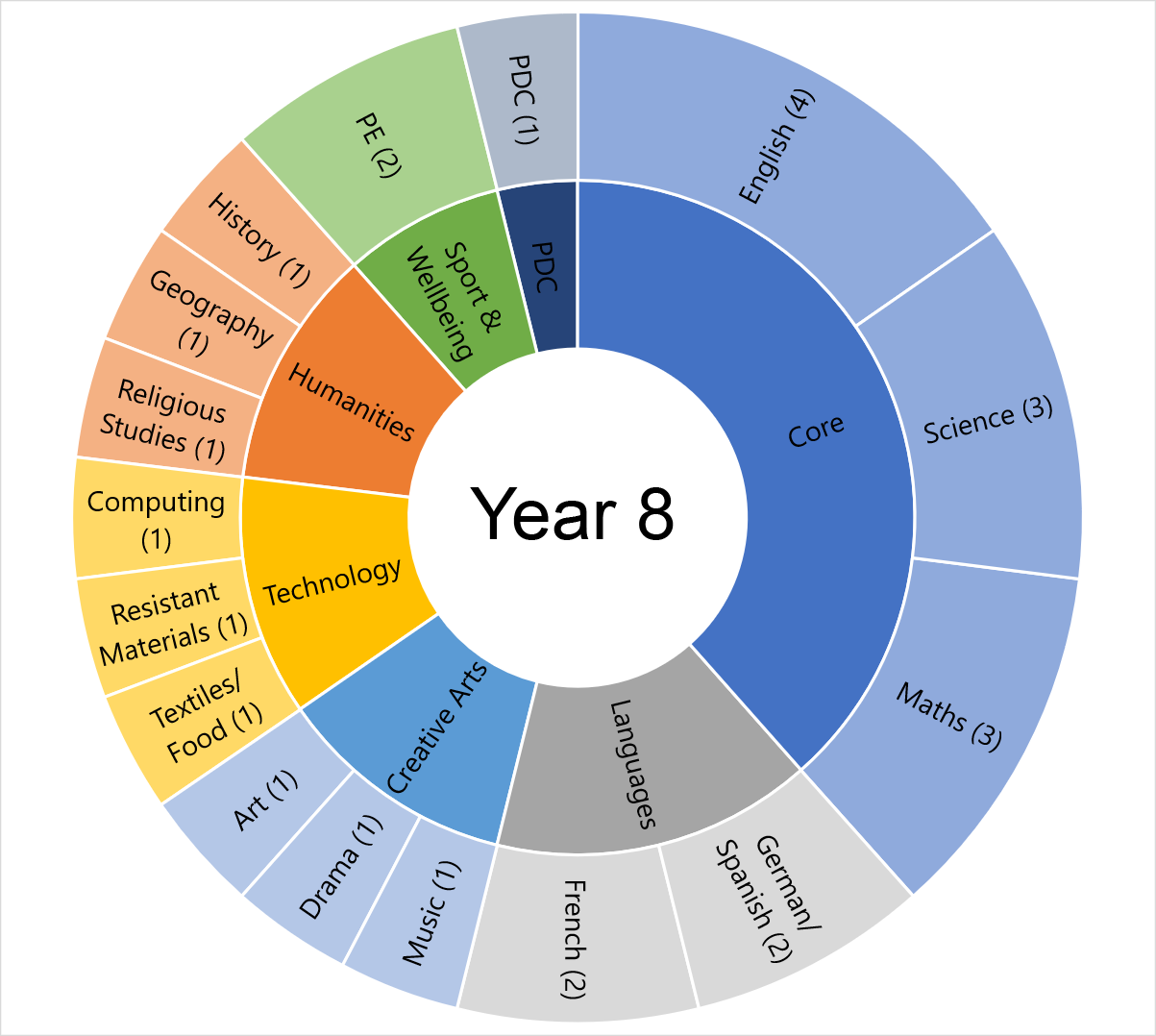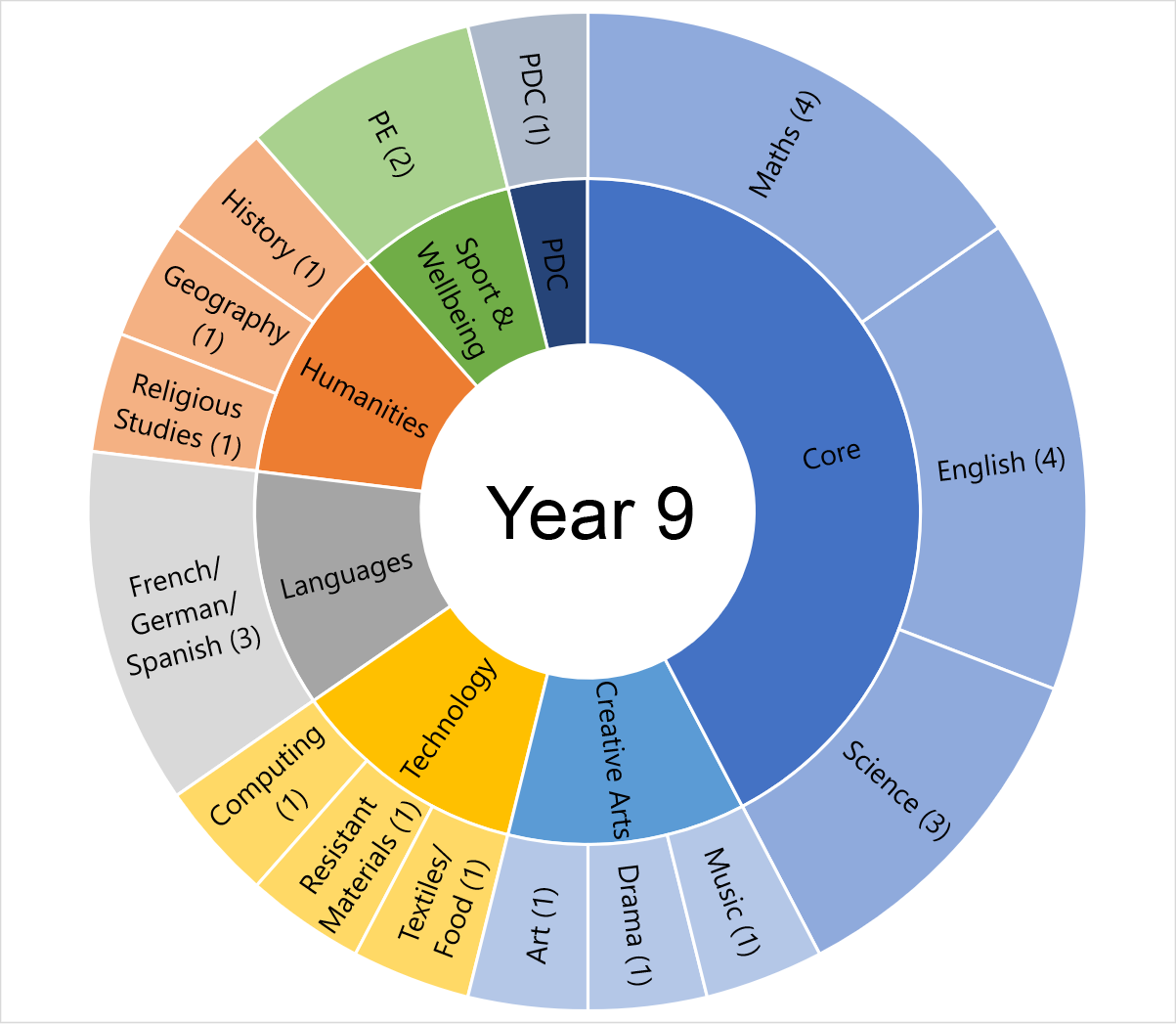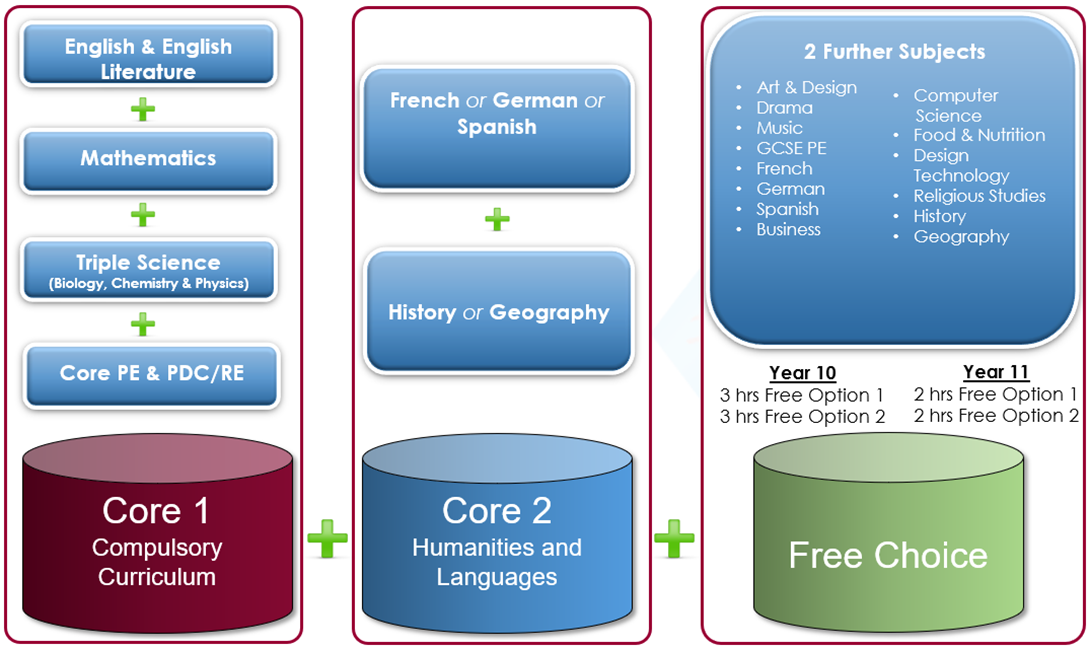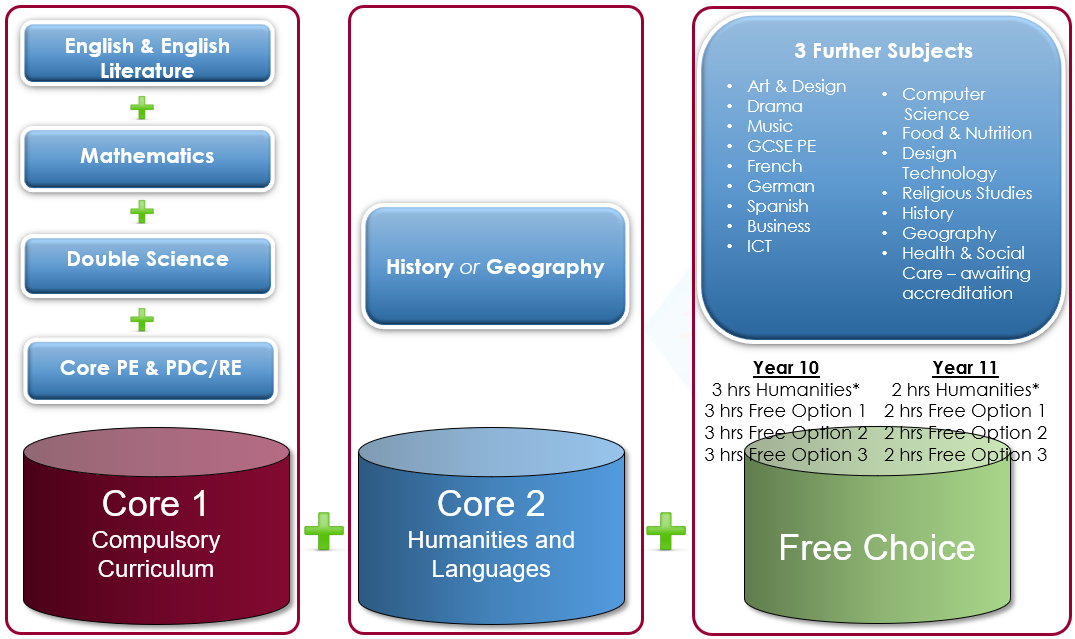Our mission statement is “Learning Together For The Future.” We work very hard to ensure that all members of our school community acquire the knowledge and skills required for now and for a fulfilling future. Our curriculum is designed to help students to develop confidence in themselves and their abilities, to feel valued and value others and to appreciate the world at large.
We believe that all our students have talents and abilities that it is our responsibility to discover and develop. We know that when we have the highest expectations of what young people can achieve they rarely fail to thrive. And so our curriculum is designed on the basis that intelligence is a muscle, not a fixed quantity. We are concerned to ensure every student in our care is challenged to believe in their ability to achieve their best by trying their hardest.
Our curriculum is rooted in these aims and is designed to ensure students are engaged and challenged to achieve the best that they can. We believe profoundly that students thrive best in a nurturing, well-ordered environment where they develop the self-confidence to take risks and push themselves.
What follows in the Key Stage 3, 4 and Sixth Form Sections is an introduction to the Ecclesbourne Curriculum. It should be noted that we are very proud of the exceptionally high standards of success achieved by our students and of the strong academic core to our curriculum. It is also important to note that we place a very strong emphasis on the development of character and values and a great deal of this is achieved through our enrichment and extra-curricular provision from Year 7 to 13. As you read on please do keep your eyes open for the wealth of opportunities available outside the classroom.
Intent: Aims of the Curriculum
The Ecclesbourne School Curriculum aims to:
- Provide a broad, balanced curriculum with a strong academic core
- Meet the requirements of the National Curriculum including a three-year Key Stage 3 that preserves the widest possible choice for all
- Ensure students are equipped with the knowledge and cultural capital needed to be educated citizens conversant with the best that has been thought and said
- Engender an appreciation of human creativity and achievement
- Develop students’ own creativity and ability to solve problems
- Provide every student with the skills knowledge and qualifications to enable them to access the next stage of their education/career
- Inspire, challenge, stretch and support students to achieve their potential
- Give students the experiences and opportunities to develop as caring, healthy and informed young people in the 21st century
- Develop in students the resilience and flexibility to be able to adapt to the changing world they will meet.
- Foster an enjoyment in learning and a commitment to lifelong learning
- Promote learning in its broadest sense, across and beyond the taught curriculum
- Open students’ minds to the broad richness of our spiritual, moral, social and cultural heritages
Impact: Outcomes of the Curriculum
The Ecclesbourne School Curriculum will:
- Lead to qualifications that our students need to pursue their chosen path.
- Lead to qualifications that are of worth to employers and for entry into Higher Education.
- Meet the needs of students of all abilities at Ecclesbourne.
- Prepare students to make informed and appropriate choices at the end of KS3, KS4 and KS5.
- Help students develop lively, enquiring minds, an ability to question and argue rationally and to apply themselves to tasks and physical skills.
- Be broad, balanced, relevant, differentiated and include personalisation.
- Adapt to changing requirements and expectations from Government and Higher Education.
- Fulfil the statutory requirements of the School’s funding agreement and meet the expectations of regulatory bodies.
- Exceed national standards in achievement, attainment and progress.
- Help students develop personal moral values, respect for religious values and tolerance of other beliefs and cultures.
Implementation: Curriculum Delivery
Key Stage 3
Key Stage 4
Key Stage 5
Students are organised into forms of 30 students and taught a broad and balanced curriculum. In the main, students are taught in all ability form groups to allow all to develop and access the highest aspirations. Where setting is apt to improve student outcomes, students are taught in sets by ability. Students can expect to be placed in sets based on attainment and aptitude in Mathematics in Year 7, Modern Languages from Year 8 and in Science from Year 9. This helps to target tuition at need and allows group sizes that allow more one-to-one support for those most likely to benefit.
Our curriculum is broad and balanced and designed to allow opportunity for enrichment through fieldwork and experience. There are special cross-curricular days devoted to Health, Science and Technology, Enterprise, Careers and Study Skills as well as a range of both national and international trips.
Across the curriculum there is a strong focus on Assessment for Learning, with the aim of enabling students to make maximum progress and know exactly what they need to do to improve. In every area of the curriculum students are made familiar with the assessment criteria for their subjects, regularly assessed, and give next step advice to help them focus their efforts.
DELIVERY
The curriculum is comprised of 25, sixty minute lessons delivered across five days. In addition, on a Tuesday all students have a Personal Development & Citizenship (PDC) lesson of 50 minutes with their form tutor. The majority of lessons in Lower School are delivered through form based mixed ability teaching apart from Maths (Year 7 onwards) and Science and Languages (Year 9 onwards). A small number of students in Lower School are withdrawn from specified lessons for individualised support. Where this is the case care is taken to consider student and parental preference, consult with subject staff and ensure that no area of the curriculum is used disproportionately and that students are not withdrawn from the same subject in consecutive years. The guiding principle is the maintenance of the broadest curriculum for all students. There are smaller class sizes in Technology to account for the practical nature of the subject.
The KS4 Curriculum consists of the Core, Guided Option and Free Choices. The Core Curriculum comprises Mathematics, English Language, English Literature, Science and courses in Personal Development [including Religious Education, RSE, Careers, Citizenship and Health Education]. The Core Curriculum is compulsory. It is also compulsory to select a “Guided Option”, either History or Geography.
Students selected to study Triple Science are guided to study a Modern Foreign Language in most cases. Those students who choose Triple Science and a language will have two further free choices beyond the choices in the Core. Whilst those students who study Double Science (Trilogy) have three further free options.
THE ENGLISH BACCALAUREATE
The English Baccalaureate is designed to increase the number of children taking a core curriculum comprising traditional academic subjects. A student gains the English Baccalaureate if they achieve a GCSE Grade C or above in all of the qualifications stated below:
- English;
- Mathematics;
- Two or more Sciences;
- Humanities: either Geography or History;
- A Modern Foreign Language.
The subjects that make up The English Baccalaureate are highly regarded by universities and employers. Students who succeed in them go on to higher levels of attainment at A Level. However, while most students will be able to access and succeed in this curriculum – it will clearly not be suitable for everyone. Therefore, the guiding principles of our Options process are:
- To provide a broad and balanced curriculum with a strong academic core within the statutory guidelines;
- To ensure that everyone has access to all the curriculum areas;
- To meet the learning needs of individuals;
- To provide suitable vocational choices.
In addition to the core curriculum, students can choose to study up to four subjects from across the curriculum including in Creative Arts & PE, Modern Foreign Languages, Technology, Business, Computing and Vocational courses. Typically, students will complete 9-11 GCSEs in total depending on their chosen options.
In Year 11 all students will be able to follow an enrichment curriculum on Wednesday afternoons where they can experience vocational, work experience, enterprise and outdoor activities designed to prepare them for life after school. Some of these courses lead to additional GCSE level qualifications.
DELIVERY
| Subject | Year 10 | Year 11 |
| English Language & Literature | 3 hours | 4 hours |
| Mathematics | 4 hours | 4 hours |
| Science | 5 hours | 7 hours |
| Humanities: Geography or History | 3 hours | 2 hours |
| PE | 1 hour | 1 hour |
| PDC | 1 hour | 1 hour |
| Option 1: MFL or Free Option | 3 hours | 2 hours |
| Option 2: Free Option | 3 hours | 2 hours |
| Option 3: Free Option | 3 hours | 2 hours |
| Enrichment | 1 hour | |
| Modern Foreign Languages:French, German, Spanish | ||
| Free Options: Computer Science, Food & Nutrition, Design Technology, Religious Studies, History, Geography, BTEC Health & Social Care, Art & Design, Drama & Theatre Studies, Music, GCSE PE, BTEC PE, French, German, Spanish, Business, BTEC ICT | ||
THE SIXTH FORM
The Sixth Form curriculum is designed to inspire and challenge our Sixth Form students. We offer a core academic curriculum of A level qualifications and Applied General Qualifications. With no pre-defined option blocks, our curriculum is designed around the needs of our students with the arts, three languages, technology and STEM subjects all available to our students. Most students will opt for three subjects from our core curriculum. Sixth Form students receive weekly personal development and citizenship lessons (PDC) with their tutor and daily tutor time enables the school to provide personalised careers guidance and academic support.
From September 2022, year 12 students will be expected to choose an option from our extended curriculum to supplement their core academic studies. Students with a GCSE grade average of 7+ are able to choose four subjects in year 12 and an extended curriculum option.
The Ecclesbourne Sixth Form Curriculum is at least as much about what goes on outside the core curriculum. We expect students to throw themselves into the life of the school, gaining experience and life skills in the process. There isn’t space here to do justice to the full range of enrichment and extra-curricular experience on offer but the following gives some flavour. Year 7 Mentoring, Lesson Support work, Debating Society, Sports leadership, Sports teams, Community Liaison, Duke of Edinburgh Silver & Gold, New York Trip, Spoken English Competition, House Plays, House Sports and so on. The sky really is the limit, and the more you put in, the more you will benefit.
We want our students to enjoy their time at The Ecclesbourne School Sixth Form and leave us with experiences, skills and qualities required to make a positive contributon to wider society. Our Duke of Edinburgh Gold Award programme is one the largest in the East Midlands. The volunteering element of this course is supplemented by the school’s ‘Volunteering Award’.
As a member of a house, Sixth Form students can participate in music, debates, drama and sport. House Captains are expected to lead younger students in house events and even write and direct their own ‘House Play’. The arts play a crucial role in the holistic development of young people. Sixth Form students can participate in a variety of musical groups from swing band through to choirs and whole school musical events. Many students continue to participate in sport and the arts outside of school with some members of the Sixth Form performing at regional or national level.




